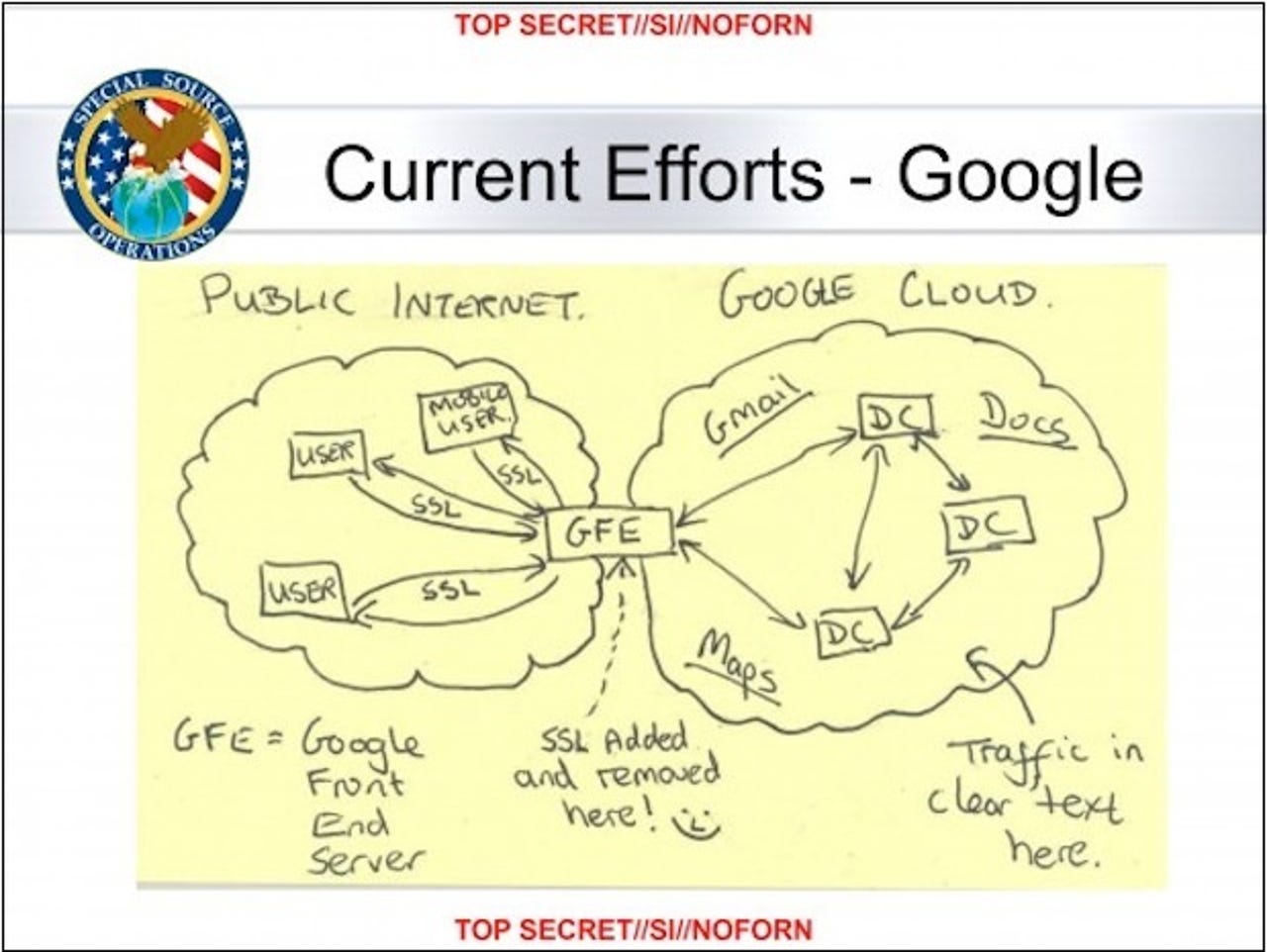Yahoo bolsters encryption after NSA datacenter link tapping


Following the spate leaks by former U.S. government contractor Edward Snowden, Yahoo will follow Google's move by encrypting its global traffic.
Latest on the NSA tapping Google, Yahoo datacenter links
On the company blog posted Monday, Yahoo chief executive Marissa Mayer noted the leaks over the past six months, and reiterated that Yahoo has "never given access to our datacenters to the NSA or to any other government agency."
Codenamed "Muscular," the NSA works in conjunction with its British counterparts at GCHQ to intercept the cables between the two Internet giants' datacenters around the world.
As part of efforts to counter U.S. government surveillance, Yahoo will introduce encryption to all of its products — currently only Yahoo Mail currently supports HTTPS with a 2048-bit key — by January 8, 2014, a little over two months from Monday's announcement.
Also, Mayer said the company would, by the end of the first quarter of 2014, encrypt all data between Yahoo datacenters.
Users will additionally be given an option to encrypt all data to and from Yahoo by the end of the first three months of 2014.
Yahoo said it will work with international partners to offer HTTPS-enabled co-branded email services.
Google recently added its own layer of encryption to internal datacenter traffic in order to subvert the U.S. government's clandestine efforts to snoop on customer data without a formal, presented warrant.
The reason why it was not encrypted in the first place was because, according to two Google engineers who recently posted their own visible anger at the NSA's spying operations, the data was considered outside the reach of the U.S. government.
Google and other companies spend vast amounts on leasing fiber optic cables from companies in order to keep their data off the "public" Internet.